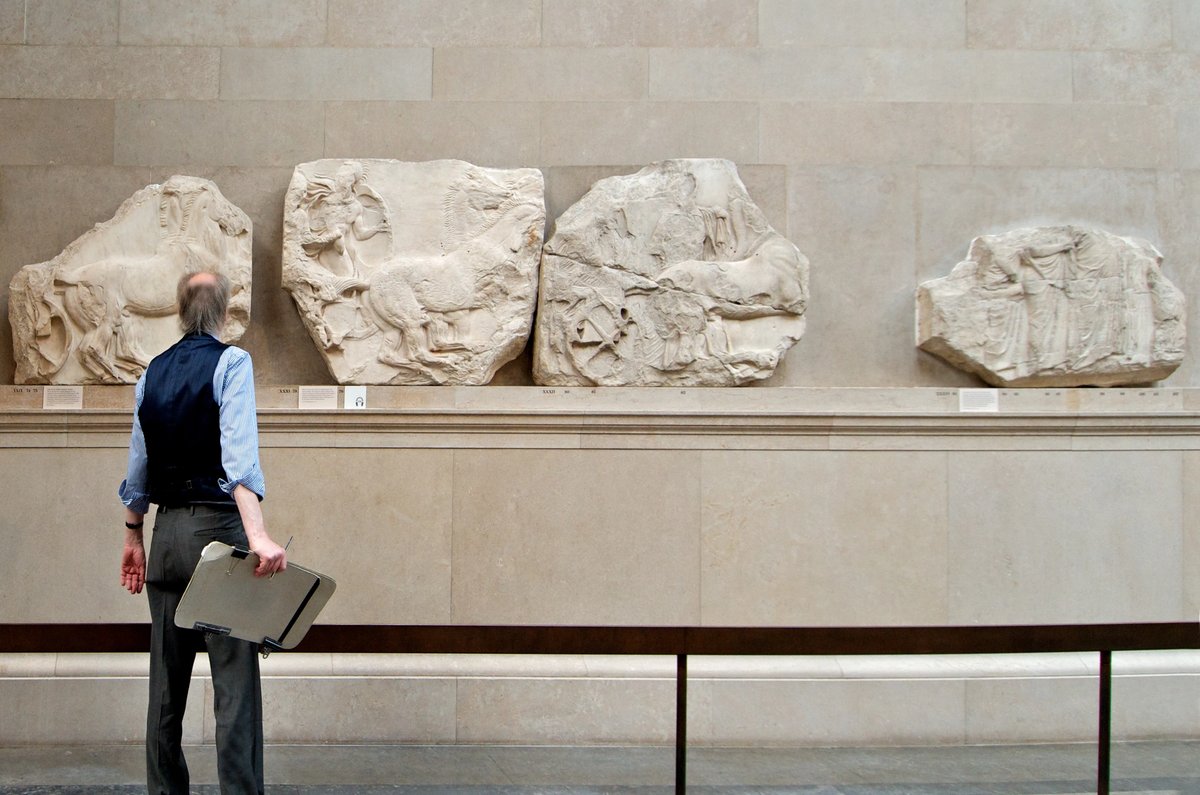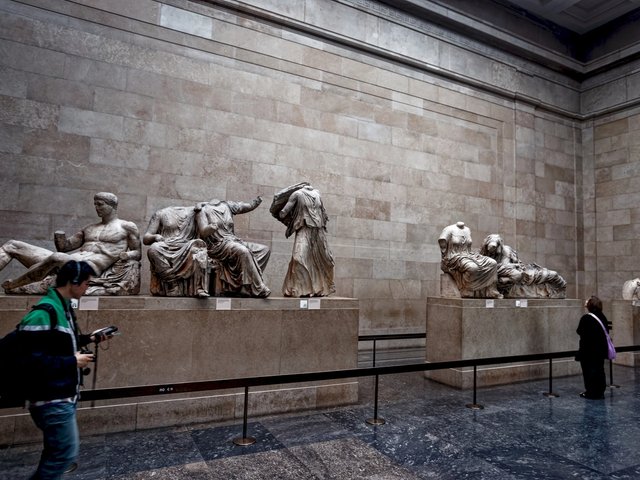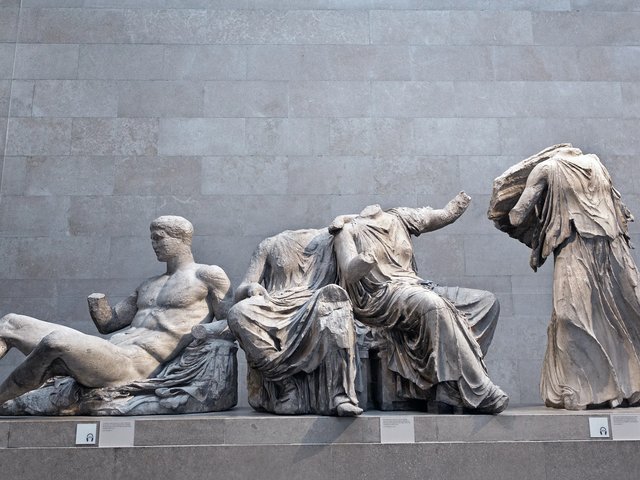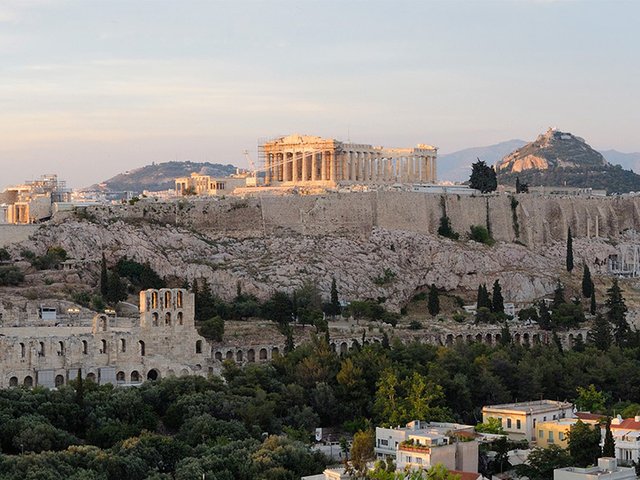A group of high-profile figures, including the former UK Prime Minister Liz Truss, has written a letter criticising what it claims is an “accelerating” campaign to return the Parthenon Marbles from the British Museum to Greece.
The letter, which is addressed to the trustees of the British Museum and the UK government, calls for an end to any negotiations to send back the sculptures, alleging that “this movement to remove [them] is not organic. It is politically orchestrated, heavily financed, and increasingly shrouded in secrecy”. The letter later claims: “Such secrecy may represent a breach of the fiduciary duties owed by museum trustees to the public.”
Other signatories of the letter—which claims the Marbles “are British owned and should remain at the Museum for the benefit of its visitors”—derive from the worlds of politics, academia and the arts including the historian David Starkey and Michael Daley, the director of Artwatch UK. According to the Guardian, the letter was published by the hard-right campaign group Great British Pac, which is led by the Conservative activist Claire Bullivant and the former Reform deputy co-leader Ben Habib.
The marbles have been housed in the British Museum since 1817, arriving there after being removed from the Parthenon temple on the Acropolis in Athens by the Scottish nobleman Lord Elgin, the then ambassador to the Ottoman court. In 2022, George Osborne, the chairman of the British Museum, said there is a “deal to be done” over sharing the Parthenon Marbles with Greece.
The Great British Pac describes itself online as “a coalition of business leaders, politicians, lawyers, police chiefs, journalists, patriots, and activists from all walks of life, united by a shared love for our country and a commitment to its future… the Great British Pac is committed to safeguarding the United Kingdom from Labour’s reckless policy proposals.”
The letter suggests that signatories may seek legal action to prevent the Marbles’ return. “We reserve the right to seek legal advice on how best to protect the interests of the British public, in their capacity as beneficiaries of the Museum's trust, including by pursuing an injunction to halt any ongoing or future negotiations until the beneficiaries have been fully informed and properly warned of the potential risks and adverse consequences of such actions,” it says.
Dan Hicks, a curator at the Pitt Rivers Museum and professor of contemporary archaeology at the University of Oxford, told The Guardian: “This letter is a desperate culture-warrior exercise in scaremongering and intimidation developed by undefined political actors.”
He added: “International loans have been a normal part of the operation of museum exhibitions for more than a century. To give just one example, the British Museum itself will be the recipient of a high-profile loan from France next year when the Bayeux tapestry will be put on display.”
Speaking to The Art Newspaper, the archaeologist Mario Trabucco della Torretta, one of the letter organisers, alleges that restitution claims such as the one surrounding the Marbles are “animated” by “distortions of the historical evidence”. He adds: “These claims are routinely based on selection bias, patent anachronisms, and carefully edited quotations of the sources. The cultural policy of the country cannot be based on this kind of unscrupulous use of the evidence. That the Marbles were acquired legally is an uncontestable historical fact.”
The letter cites the Parthenon Project—which campaigns for the reunification of the Parthenon sculptures—meanwhile as "lavishly funded by a foreign industrialist". Sky News reports that the website of the lobbying group—whose supporters include the actor Stephen Fry and former Conservative minister Ed Vaizey—lists Greek plastics magnate John Lefas as the leader of the organisation. The Parthenon Project was contacted for comment.
The most recent statement on the Parthenon Marbles posted on the British Museum website says: “The trustees of the British Museum believe that there's a great public benefit to seeing the sculptures within the context of the world collection of the British Museum, in order to deepen our understanding of their significance within world cultural history. This provides the ideal complement to the display in the Acropolis Museum.”
A 1963 act of parliament also prevents deaccessioning ancient objects that have been housed at the British Museum since the early 19th century.
The British Museum was contacted for comment.





